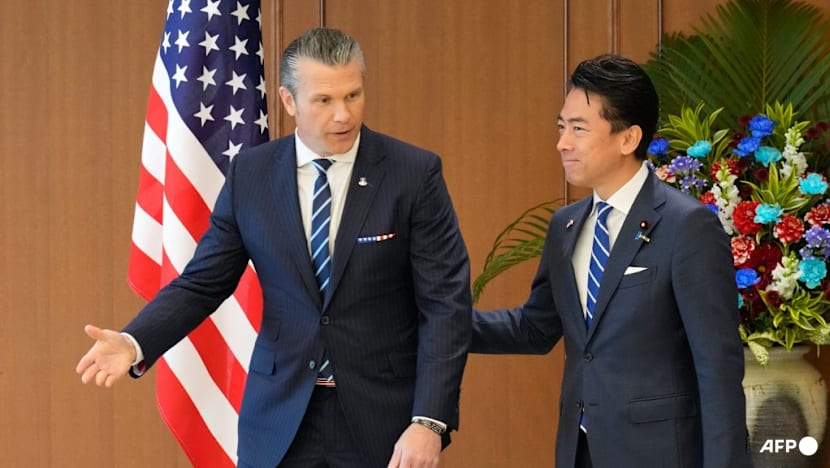Japan-US ties key to deterring China 'aggression': Pentagon

Japan's Minister of Defense Shinjiro Koizumi (R) walks with US Secretary of Defense Pete Hegseth before their meeting at the Japanese defence ministry in Tokyo on Oct 29, 2025. (Photo: Eugene Hoshiko/POOL/AFP)
TOKYO: Pentagon chief Pete Hegseth said on Wednesday (Oct 29) the Japan-US alliance was "critical to deterring Chinese military aggression", as his Japanese counterpart confirmed plans to accelerate a defence spending target.
The comments came in the wake of the first face-to-face meeting on Tuesday between US President Donald Trump and new Japanese Prime Minister Sanae Takaichi, where security was a major topic.
Long-pacifist Japan is adopting a more muscular military stance as relations with China worsen.
"To respond to regional contingencies and keep our country safe, shoulder to shoulder with Japan, we look forward to continuing to strengthen our alliance," Hegseth said during a meeting with Japan Defence Minister Shinjiro Koizumi in Tokyo.
Takaichi, a China hawk, said last week her government would achieve its target of spending two per cent of gross domestic product on defence this fiscal year - two years ahead of schedule.
The United States, which has around 60,000 military personnel in Japan, wants Tokyo to spend even more, potentially matching the five per cent of GDP pledged by NATO members in June.
Japan's Defence Minister Koizumi confirmed plans on Wednesday to accelerate the target.
"We will take measures to achieve the level of two per cent of GDP during this fiscal year, earlier than" the original plan, Koizumi told Hegseth in Tokyo.
"In light of the situation where missile capabilities have been significantly enhanced in the area surrounding Japan, I believe it is important to relentlessly enforce missile defence capabilities," he also said.
On Tuesday, speaking alongside Trump on board the USS George Washington near Tokyo, Takaichi told a crowd of hundreds of sailors that she was "committed to fundamentally reinforce" Japan's defence capabilities, noting her nation faces "unprecedented" security dangers.















